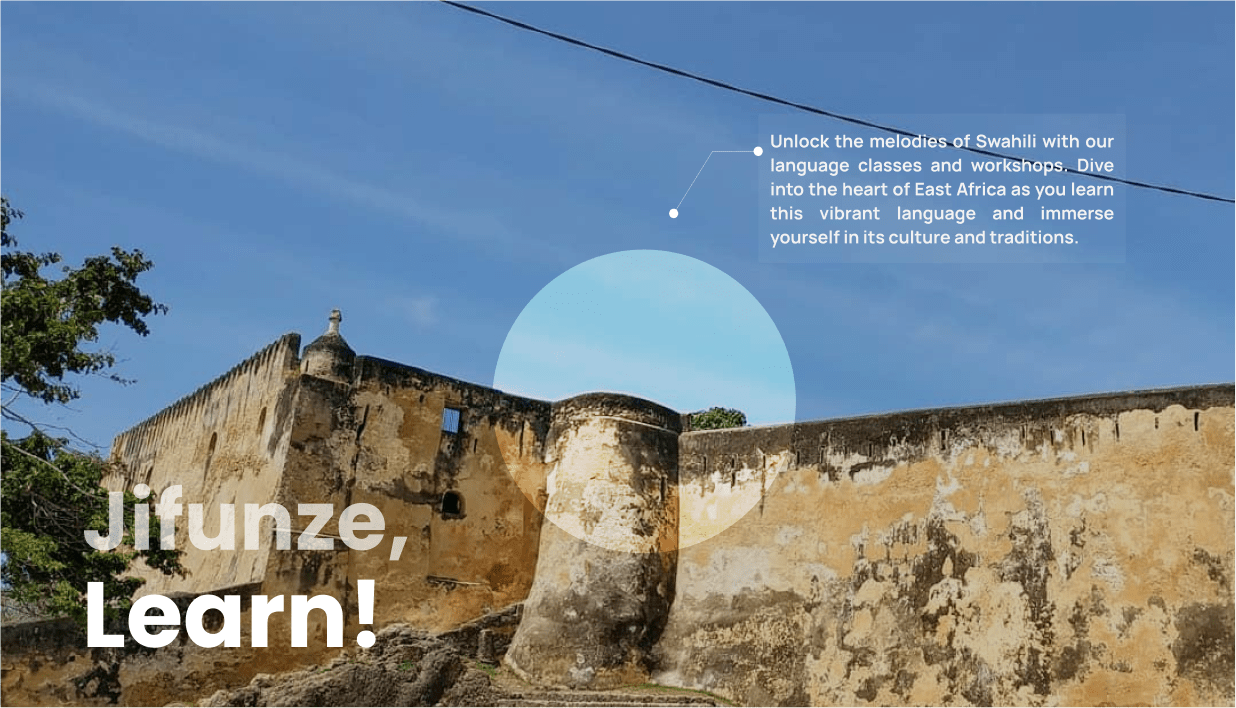
SWAHILI SCHOOL
Where language meets culture. Learn Swahili as a second language.
HEAR FROM OUR HAPPY STUDENTS
Unlock the melodies of Swahili with our language classes and workshops. Dive into the heart of East Africa as you learn this vibrant language and immerse yourself in its culture and traditions.
A1 Level (Beginner)
At the end of this course, you will be able to:- You will understand and use very frequently used everyday expressions as well as simple phrases to meet immediate needs.
- You can introduce yourself and others and can ask and answer questions about personal details such as where you live, things you have, and people you know.
- You can interact simply provided the other person talks slowly and clearly and is prepared to cooperate.
A2 Level (Elementary)
At the end of this course, you will be able to:- You can easily express yourself in areas of experience most immediately relevant to you. E.g. Personal and family information, shopping, places of interest, and employment
- You can communicate in simple, everyday tasks requiring no more than a simple and direct exchange of information on familiar and routine matters.
- You can describe in simple terms aspects of your past, environment, and matters related to your immediate needs.
B1 Level (Lower Intermediate)
At the end of this course, you will be able to:- You can understand the main points on common topics at work, school, or travelling.
- Understand general and specific details given clear speech.
- Understand factual texts on subjects of interest.
B2 Level (Upper Intermediate)
At the end of this course, you will be able to:- Function independently in a variety of academic and professional environments in Swahili, although with a limited range of nuance and precision.
Our Resources
From books to pre-recorded videos to in person classes, our Swahili classes are flexible and tailored to you and your specific needs.
This is what Ngugi wa Thiongo had to say about our curriculum;
“The African continent has many languages. But if there is one language that a non-African, or a diasporan African, must learn, it should be Kiswahili. The language is spoken in many countries including Kenya, Tanzania, Uganda, Burundi, Congo and parts of Mozambique and South Africa. It is taught in many universities in Africa, Europe, Asia and America. Kiswahili is not only pan African, but also global. There are many books from which one can learn Kiswahili. But I really recommend Swahili Books 1 and 2, by Odilia Anyachi Okonga. The illustrations that accompany the texts are clear, varied and captivating. Each picture tells a visual story. The vocabulary is arranged in such a way that by the time you have gone through the two texts, you should be able to read Kiswahili texts, and hold a decent conversation in Kiswahili.”
Anyachi, one of the names of the author, means , “eye of God”. What better way of learning Kiswahili but from one with the eye of God, who gave humans the power of speech?
Start Your Learning Journey With a Book
Our books are translated in 3 different languages
Swahili to English, Swahili to French and Swahili to Dutch. Pick up a copy in the language of your choice.
JOIN OUR NEXT CLASS
Our classes are designed to accommodate your availability. Whether you’re a beginner or looking to enhance your language skills. or just brushing up on your Swahili grammar. Get in touch today.
Contact us for a Swahili Class or Workshop
Why Learn Swahili?
Cultural Enrichment
Learning Swahili opens the door to a rich and diverse culture. It allows you to immerse yourself in the traditions, music, art, and storytelling of Swahili-speaking communities, providing a deeper appreciation of their way of life.
Travel and Exploration
Swahili is spoken in numerous East African countries, knowing Swahili enhances your travel experiences, facilitates communication with locals, and allows you to explore these regions more authentically.
Business and Trade
Swahili serves as a valuable language for business and trade in East Africa. If you’re involved in international commerce or plan to work in the region, knowledge of Swahili can be a significant asset, enabling smoother negotiations and connections with local partners.
Humanitarian Work
Swahili is often used in humanitarian and development projects in East Africa. If you’re interested in working for NGOs, charities, or international organizations in the region, knowing Swahili can be a valuable tool for effective communication and community engagement.
